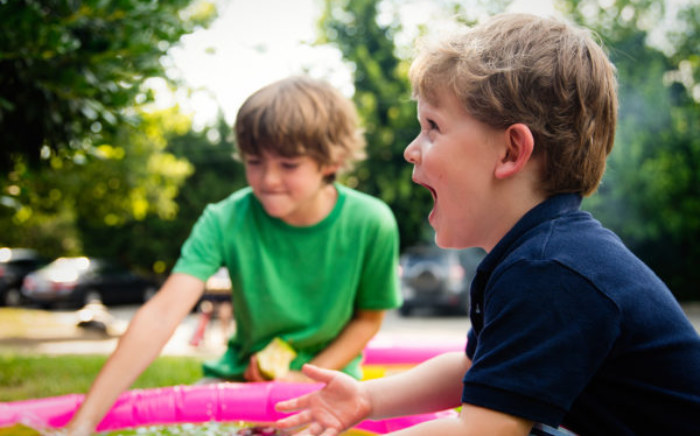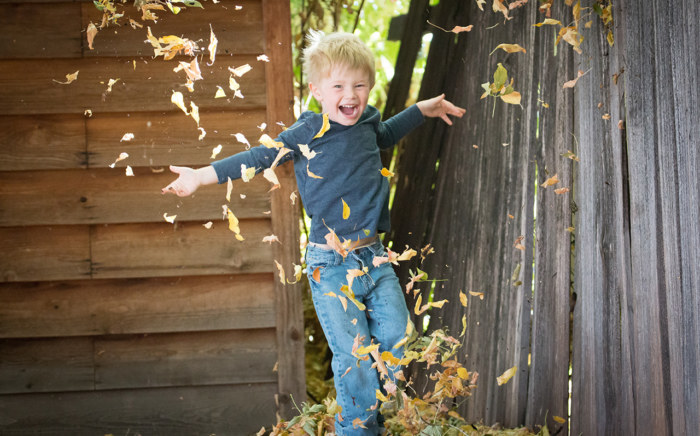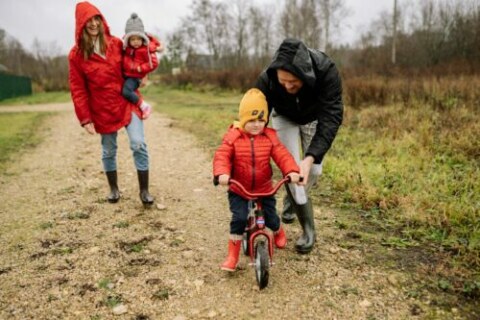Back-to-school is around the corner, and many of us are wondering what that will look like for our children at this time. Schools will be resuming full-time live instruction for the first time since the initial shutdowns in March 2020. Many children have not consistently seen their friends in some time, and peer groups may have changed significantly from pre-pandemic times. They have not had to think about what to wear to school, seeing peers in the hallways, maintaining their seat or attending throughout classes during a full school day, or interacting with teachers and coaches on a daily basis. They may not feel prepared for the sudden increase in academic demands and rigor, as many teachers had been more lenient about deadlines and reduced workloads throughout virtual learning. Children may feel unsure about how to navigate personal differences in health precautions (e.g., social distancing, use of hand sanitizers, sharing of personal items/food) at school and with peers, particularly given the recent rise in positive cases of COVID-19. There’s a lot to consider! So, how can we best prepare to help our kids cope with the return to school in person?
Remain flexible.
Continue to practice tolerating uncertainty! This remains an evolving situation for everybody, and we cannot know or prepare ahead for every possible contingency. There is enough on our plates in just this one moment, without adding on by worrying about what has not yet happened. Each time you catch yourself having a “what if” thought, use that as a cue to mindfully return your attention to the here and now. Model good coping skills for your children, by discussing how you coped with moments of overwhelm, anxiety, sadness, etc.
I feel so anxious thinking about all the work I have to do for tomorrow. I’m going to…
…take some deep breaths
…do something else for 5 minutes
…go for a 10-minute walk for some fresh air
…play with the dog/cat/hamster
…make a cup of my favorite tea
…call a friend
…stretch
…make a quick snack or drink some water
…before coming back to my work.
Get comfortable being uncomfortable.
This is our motto for a reason! Encourage your child to engage in brave behaviors, because you never know where it might lead. One brave step leads to others, which can result in a chain of positive consequences.
Try out for a new sport, join a new club, or take up a new hobby. (Your child may find that they have discovered a hidden talent or discovered a new passion. It may also have the added benefit of resulting in increased physical activity and socialization, which can improve their energy and mood. It may also result in greater social supports and school connectedness.)
Talk to one new classmate at school. (That person may end up becoming their best friend.)
Ask the teacher for extra help. (Beyond the obvious benefits of improved academic performance, it might also lead your child to be more likely to ask for help in the future. That teacher might become a mentor or provide a safe haven at school on a bad day.)
Practice self-compassion.
These are difficult times for everyone, and we are all doing the very best we can at any given moment. Be on the lookout for “thinking traps” that get us stuck in feelings of hopelessness or anxiety, and identify some mantras or “coping thoughts” to combat our negative self-talk.
I’ve gotten through hard times before. I can get through this, too.
[Fill in the blank] did not go as well as I would have liked, and I did the best I could. There are lots of other things I do well.
If my friend was in the same situation, what would I say to him/her/them?
Tomorrow is a new day, and things change.
Communicate.
Communicate regularly with your children. Check in during meal times or after school to ask about their day. What went well, and what didn’t go so well? What was easier than expected, and what felt hard about returning to school in person? What has stayed the same, and what has changed since pre-pandemic times? Model vulnerability with your kids, and reinforce the message that talking about emotions is acceptable and welcome. Share about personal stuck points and challenges, how they made you feel, and how you navigated them to demonstrate effective use of problem solving and coping skills.
Communicate with teachers and administrators about your child, particularly if you are noticing any difficulties or red flags. Teachers can provide extra academic or emotional support as needed, or recommend additional resources when appropriate. Having another caring, engaged adult in your child’s life is protective and can buffer against stress.
Communicate with other parents. How have others been navigating back-to-school? Strengthen your parent network to share tips and strategies, receive your own social support, and facilitate additional social activities for your children outside of school.
Know your limits.
If you and/or your child needs extra support, seek help. Connect with your faith community, friends and family, and seek professional help when needed.









